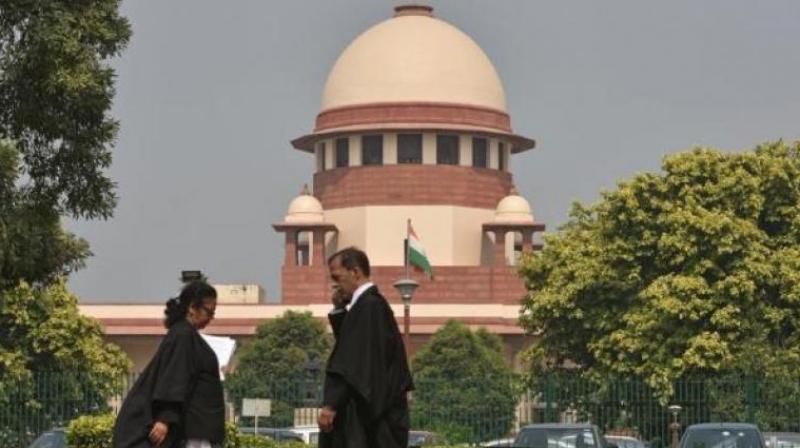SC refuses to stay Gyanvapi mosque survey
The top court, however, agreed to consider listing the plea of a Muslim party against the survey of the Gyanvapi premises

New Delhi: The Supreme Court on Friday did not pass any order on a plea challenging a Varanasi court’s order appointing an advocate commissioner to undertake a survey and videography of the Gyanvapi Masjid- Shringar Gauri Temple complex, saying that it will first look into the papers. The top court, however, agreed to consider listing the plea of a Muslim party against the survey of the Gyanvapi premises.
Senior advocate, Huzefa Ahmadi, appearing for the Muslim side in the Gyanvapi mosque case, informed the top court that a plea has been filed against the survey being conducted at the Varanasi site.
“We have filed in relation to a survey which has been directed to be conducted in relation to the Varanasi property. This (Gyanvapi) has been a mosque since time immemorial and this is clearly interdicted by the Places of Worship Act,” Mr Ahmadi said.
He said the direction to conduct a survey has been passed and an order of status quo be passed at the moment. Mr Ahmadi said, “We need an urgent hearing as a survey has been ordered.”
The Chief Justice N.V. Ramana heading a bench also comprising Justices J.K. Maheshwari and Hima Kohli asked for the petition documents to be filed, saying “we will see after we see the papers.”
“I do not know anything. How can I pass such an order? I will read. Let me see,” the CJI said.
The petitioner - committee of management of the Anjuman e-Intezamia Masjid Varanasi – had challenged the rejection of their plea seeking the replacement of the advocate commissioner Ajai Kumar, who is appointed to undertake the survey along with videography of the Gyanvapi Masjid-Shringar Gauri Temple complex by a Varanasi court. The court of Civil Judge (Senior Division) Ravi Kumar Diwakar had on May 12 also directed the completion of the survey by May 17.
The petition argued that the September 9, 2021 Allahabad High Court order staying the survey of the site by the Archaeological Survey of India was in respect of an earlier suit filed in 1991 and the stay continues to operate.
The petition before the top court said that the proceedings in the 1991 suit are already stayed by the High Court and both the suits are barred by the Places of Worship (Special Provision) Act, 1991.

